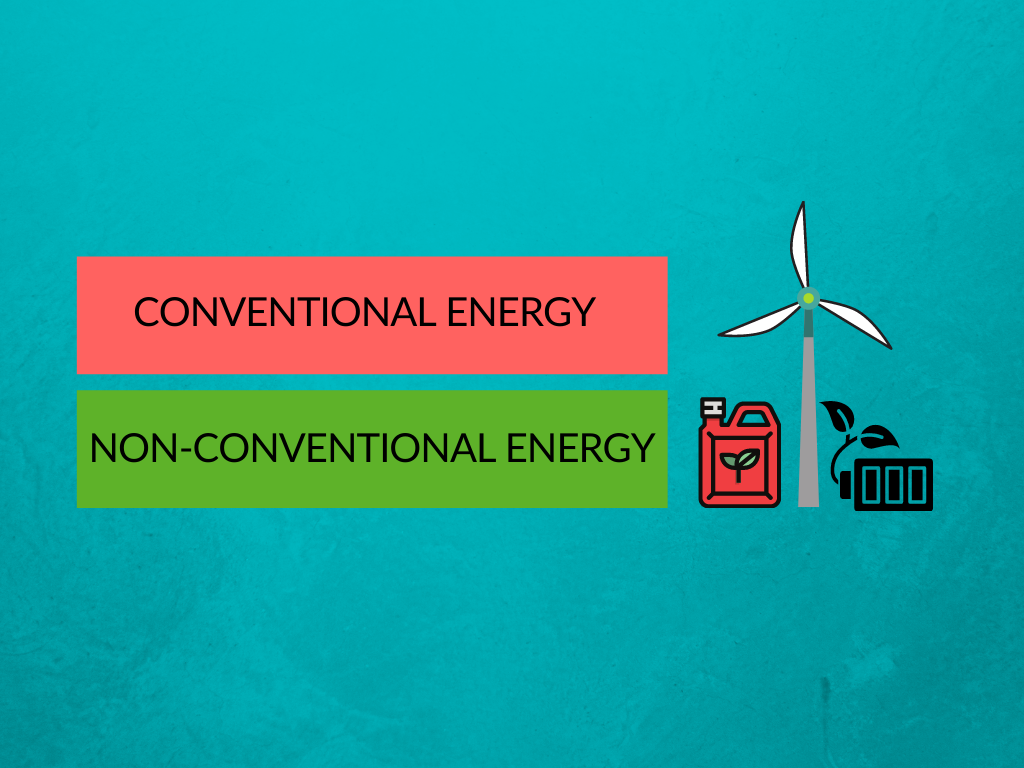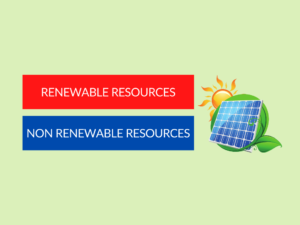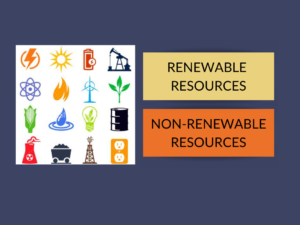Here is what you want to know about the Difference Between Conventional and Non-Conventional Source of Energy , Energy is one of the main parts of the economic infrastructure, being the essential input needed to sustain the economic process. There exists a powerful relationship between economic development and energy consumption. The more developed may be a country, the upper is that the per capita of energy consumption and vice-versa. Human civilization relies on different sources of energy
What is a conventional source of energy?
Conventional sources of energy are the natural energy resources that are present in a very limited quantity and are being employed for a protracted time. they’re called non-renewable sources as once they’re depleted, they can not be generated at the speed which might sustain their consumption rate. they’re formed from decaying matter over many many years. These resources are depleted to a good extent thanks to their continuous exploitation. it’s believed that the deposits of petroleum in our country are exhausted within few decades and also the coal reserves can last for 100 more years. Some common samples of conventional sources of energy include coal, petroleum, gas and electricity.
Conventional sources of energy are the natural energy resources that are present in an exceedingly limited quantity and are getting used for an extended time. they’re called non-renewable sources as once they’re depleted, they can not be generated at the speed which may sustain their consumption rate. they’re formed from decaying matter over many innumerable years. These resources are depleted to a good extent thanks to their continuous exploitation. it’s believed that the deposits of petroleum in our country are exhausted within few decades and also the coal reserves can last for 100 more years. Some common samples of conventional sources of energy include coal, petroleum, fossil fuel and electricity
What is a non-conventional source of energy?
Non-conventional sources of energy are the energy sources that are continuously recharged by natural processes. These can not be exhausted easily, is generated constantly so are often used again and again, e.g. alternative energy, wind energy, tidal energy, biomass energy and heat energy etc. The energy obtained from non-conventional sources is thought of as non-conventional energy. These sources don’t pollute the environment and don’t require heavy expenditure. they’re called renewable resources as they’ll get replaced through natural processes at a rate adequate or greater than the speed at which they’re consumed.
Difference Between Conventional and Non-Conventional Source of Energy
| Conventional energy | Non Conventional Energy |
|---|---|
| conventional energy sources are a non-renewable source of energy | Non-conventional energy sources are known as Renewable source of energy |
| Used for | |
| This energy source is used for commercial and industrial purposes | This energy source is used for mainly household purposes |
| Pollution | |
| A conventional energy source is considered as one of the reasons for the cause of pollution | A non-conventional energy source is pollution-free |
| Quantity | |
| `Conventional energy sources are limited in availability | Non-conventional source of energy are eco friendly |
| Examples | |
| coal, petroleum, firewood | bioenergy, solar energy, wind energy, |
Conclusion
Therefore, we can Conclude the Difference Between Conventional and Non-Conventional Source of Energy, as The demand for energy is increasing continuously because of industrialization and population growth. Since the conventional sources are limited in quantity and can expire one day, the conventional sources aren’t enough to meet this demand for energy. By utilizing non-conventional resources, conventional resources become less dependent. Therefore, the two types of energy complement each other.
More Related Readings
Difference Between LCD and LED
Difference Between Coding and Programming




